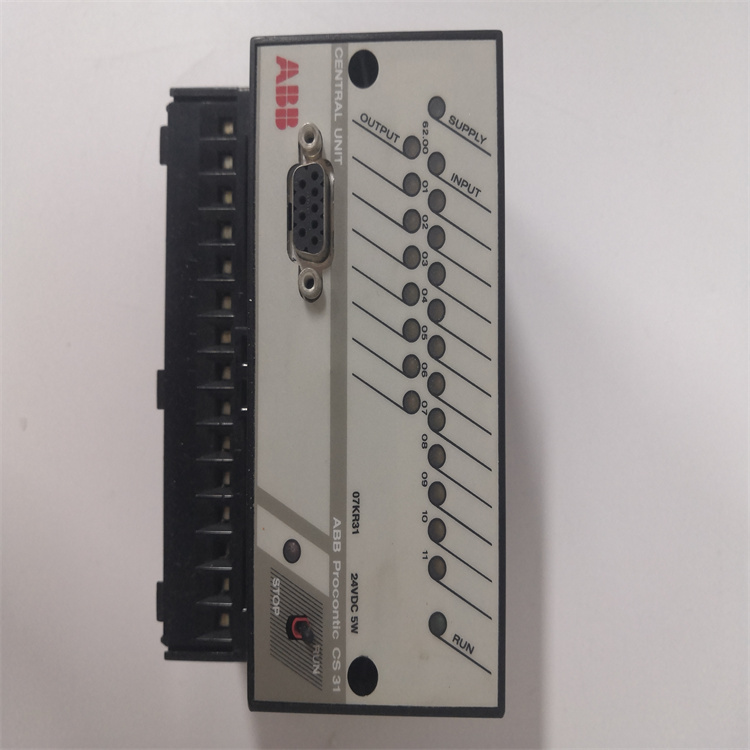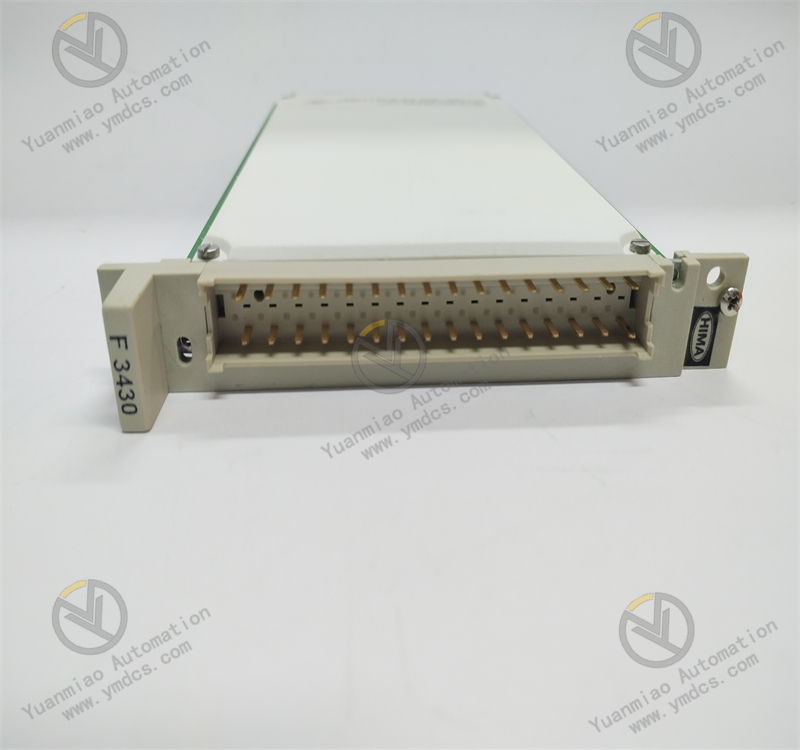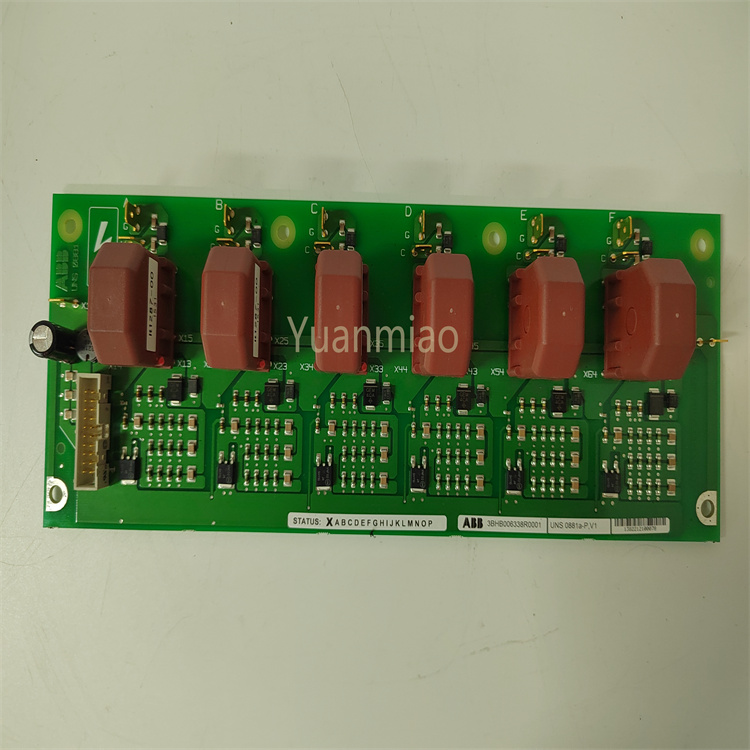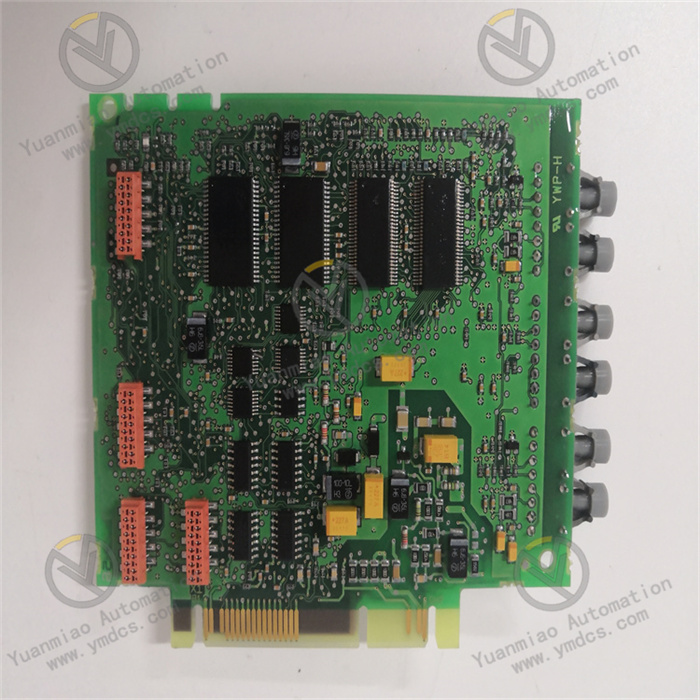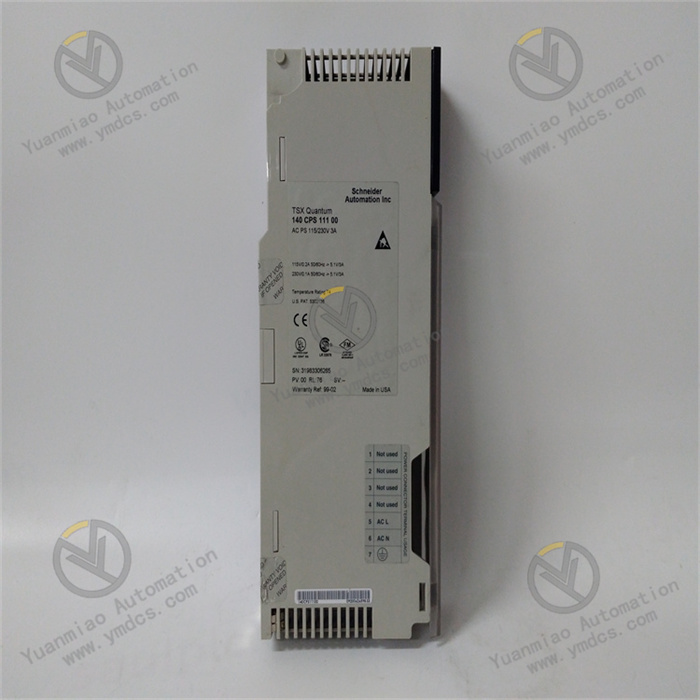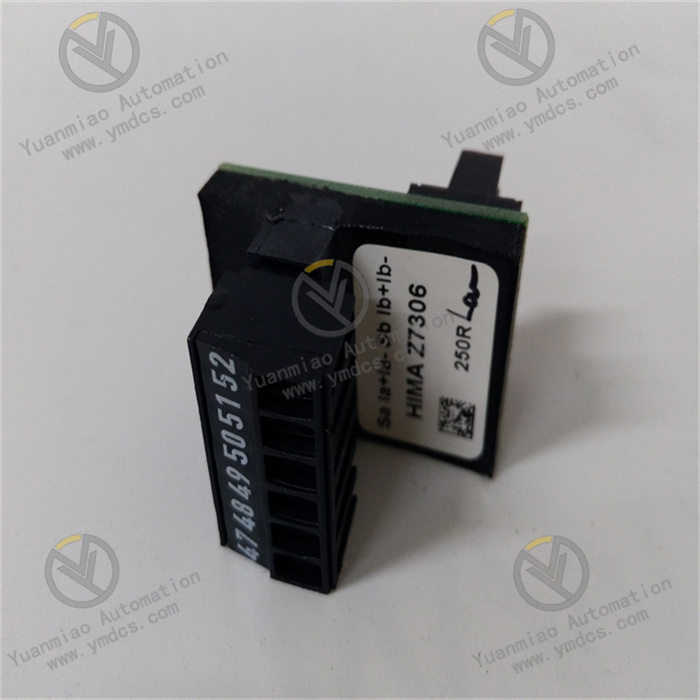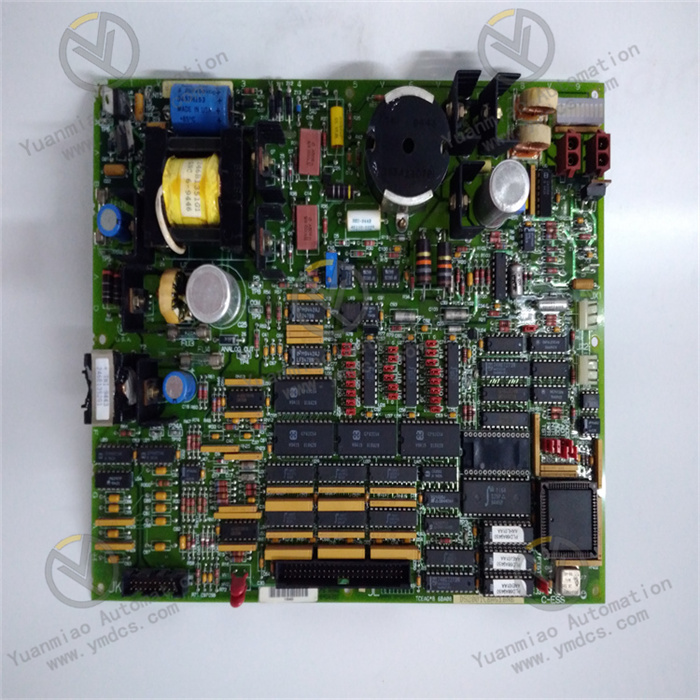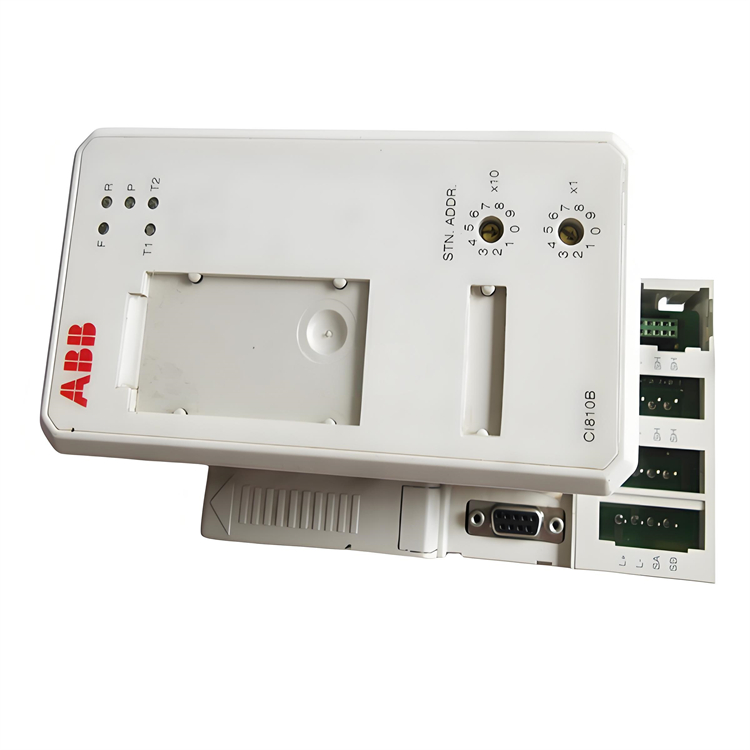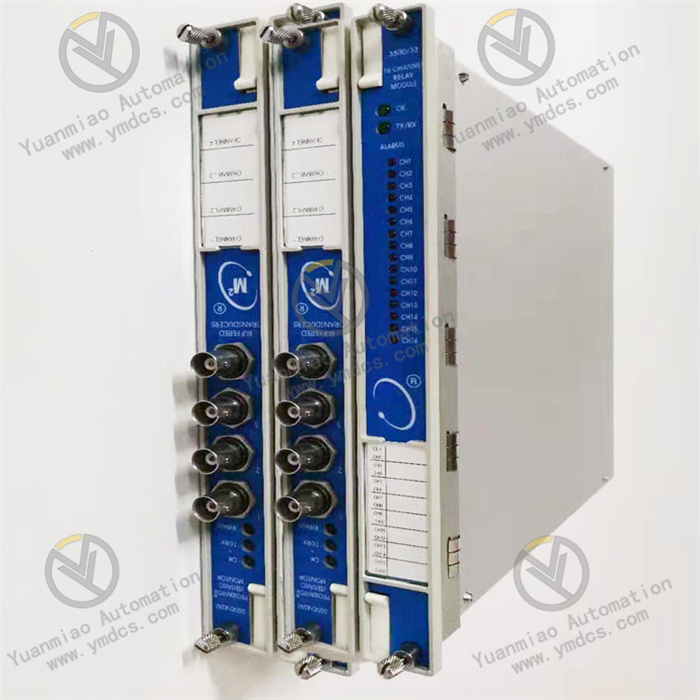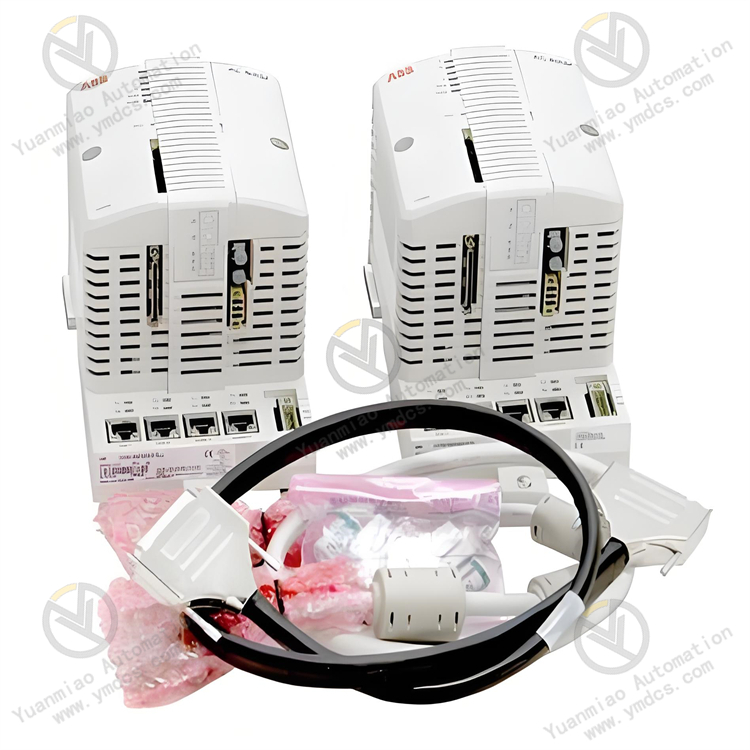Description
ABB 07KR31 FPR36000227R1202-S
I. Functional Positioning and Application Scenarios
Positioning: It belongs to the distributed I/O module in ABB's industrial automation control system, mainly used to expand the input/output (I/O) capability of the system. It is compatible with controllers such as the Advant Controller 41 series and supports cascading with PLC and DCS systems.
Typical Scenarios:
- Process Control: Achieves acquisition and control of analog (e.g., temperature, pressure) and digital signals in chemical and energy industries.
- Equipment Monitoring: Accesses sensors (e.g., encoders, proximity switches) or drives actuators (e.g., solenoid valves, motors) in mechanical manufacturing production lines.
- System Integration: Enables distributed data interaction with main controllers or host computers (e.g., ABB Freelance) via protocols such as Profibus and Ethernet.
II. Functional Features
I/O Channel Configuration and Characteristics
- Analog Input (AI): 8 channels, supporting signal types including 4-20mA, 0-10V, and PT100 thermal resistors, with 12-bit accuracy and electrical isolation (anti-interference).
- Analog Output (AO): 4 channels, outputting 4-20mA or 0-10V, supporting loads ≤500Ω, and capable of driving control valves, frequency converters, etc.
- Digital Input/Output (DI/DO): 8 channels each. DI supports 24V DC level detection (response time ≤5ms), and DO is relay output (250V AC/2A), suitable for switching control (e.g., motor start/stop).
Communication and Compatibility
- Standard with RS-485 (Modbus RTU) interface, optional Profibus DP or Ethernet interface (10/100Mbps), supporting communication with third-party devices.
- Supports hot-swapping, facilitating module replacement during system operation to reduce downtime.
Reliability Design
- Wide-temperature Operation: -25°C to +60°C, adapting to high or low-temperature industrial environments.
- Electrical Isolation: Isolation voltage ≥2500V AC between I/O channels and CPU, resistant to electromagnetic interference (compliant with EN 61000 standards).
- Redundancy Support: Optional dual-power modules (24V DC redundant power supply) to enhance system stability.
III. Technical Parameters
| Parameter Type | Specific Indicators |
|---|---|
| Processor | 16-bit microprocessor, 16MHz (optimized for I/O data processing efficiency) |
| Memory | 2MB program memory, 1MB data memory (supports basic control logic and real-time data storage) |
| Analog Input | 8 channels, 12-bit accuracy, supporting 4-20mA/0-10V/PT100, input impedance ≥100kΩ |
| Analog Output | 4 channels, 12-bit accuracy, 4-20mA/0-10V, maximum load 500Ω |
| Digital Input/Output | DI: 8 channels (24V DC, response time ≤5ms); DO: 8 channels (relay, 250V AC/2A) |
| Communication Interfaces | Standard RS-485 (Modbus RTU), optional Profibus DP or Ethernet |
| Power Supply | 24V DC (±15%), power consumption ≤10W |
| Mechanical Characteristics | Dimensions: 170mm×100mm×70mm, weight: 0.6kg |
| Protection Level | IP20 (indoor use), compliant with CE and UL certifications |
IV. Working Principle
Signal Processing Flow
- Input Stage: AI channels convert sensor signals (e.g., 4-20mA from pressure transmitters) into digital quantities via conditioning circuits; DI channels detect switch states (e.g., on/off of limit switches).
- Output Stage: The module receives commands from the main controller, outputs analog signals via AO (e.g., controlling valve opening) or drives relays via DO (e.g., starting/stopping pumps).
- Communication Interaction: Exchanges data in real time with the main controller via RS-485 or Profibus (uploading sensor values and receiving control commands).
System Integration Mode
- As a distributed I/O module, it can be cascaded on the expansion bus of the main controller (e.g., ABB 07CR41), supporting up to 128 I/O points expansion.
- Supports communication with third-party devices (e.g., intelligent instruments) via Modbus protocol to enhance compatibility.
V. Troubleshooting Guide
Abnormal I/O Signals
- Phenomenon: Significant deviation between AI display values and actual sensors; DO relays do not actuate.
- Troubleshooting: Measure sensor outputs for normality, check I/O channel parameters (signal type, range) in the module configuration software, and manually short DO terminals to determine if relays are damaged.
Communication Interruption
- Phenomenon: The main controller cannot read module data, and the communication indicator (COM LED) is abnormal.
- Troubleshooting: Check communication cable connections (e.g., if RS-485 wires are reversed), confirm communication parameters (baud rate, parity) match the main controller, and try restarting the module or replacing the interface.
Power Failure
- Phenomenon: Power indicator (POWER LED) is off, and the module is unresponsive.
- Troubleshooting: Measure the voltage at power terminals to ensure it is within 20.4-27.6V DC, check for loose cable connections, and confirm if the backup power cuts in for redundant power supplies.
VI. Typical Application Cases
Metallurgical Furnace Temperature Monitoring System
- AI channels access K-type thermocouples to collect furnace temperature, AO outputs 4-20mA to control heating power, DI monitors cooling fan status, and DO 联动 alarm devices (relays actuate at over-temperature).
Food Filling Line Automation
- DI accesses photoelectric sensors to detect bottle positions, DO controls filling valve switching, AI collects pressure sensor signals to monitor filling pressure, and communicates with PLC via Profibus for precise control and data upload.
VII. Comparison with Similar Products (vs ABB 07KR30)
| Parameter Dimension | ABB 07KR30 | ABB 07KR31 |
|---|---|---|
| Analog Input Channels | 4 channels (only 4-20mA/0-10V) | 8 channels (additionally supports PT100) |
| Communication Interfaces | Standard RS-485 (no Profibus option) | Optional Profibus DP interface |
| Memory Capacity | 1MB program + 0.5MB data | 2MB program + 1MB data (larger storage) |
| Application Scenarios | Small I/O expansion (≤32 points) | Medium systems (more channels and protocols) |


